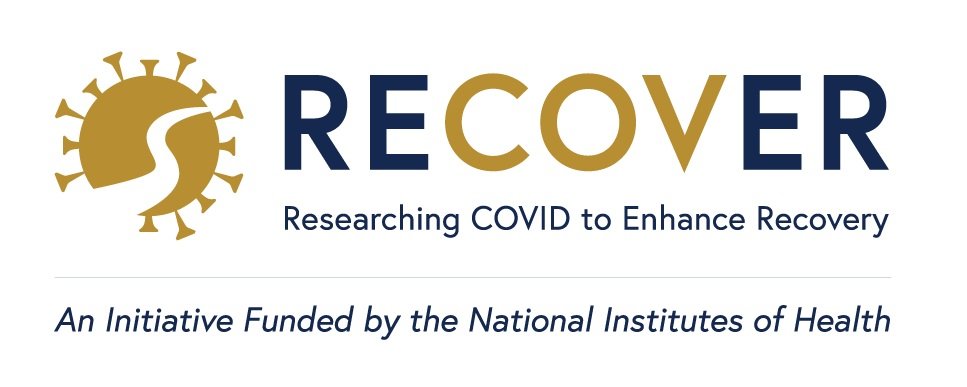Q&A with Long COVID Clinics in Boston
At the BCRC Summer Convening Part II on August 12, 2024, the audience asked Long COVID Clinic Leaders the following questions about clinical care and social support for Long COVID patients. Our partners, Jaclyn French, Julie Sullivan, and Faye Huang answered our community’s questions below.
Jaclyn French is a Senior Clinical Social Worker at Beth Israel Lahey Health
Julie Sullivan is a Program Manager at Brigham and Women’s Hospital
Faye Huang is a Nurse Practitioner at Boston Medical Center
-
Jaclyn French: At BI we have tried to share educational materials and in-service seminars around Long Covid with primary care providers, but we hope to do more of this! I would love to engage providers early on, i.e. partnering with HMS to engage the medical students.
Julie Sullivan: This is a goal of our program as well. We have discussed developing a decision-making tree or template for primary care providers to better understand Long COVID and to begin the initial work-up. This may be a tool that can be integrated into our medical record system for providers to access.
Faye Huang: At BMC, I have had discussions about long covid with my patients’ PCP providers.
-
Jaclyn French: I think we have great and knowledgeable providers here, though I know long wait times have been frustrating for many patients. An extra challenge is that none of our doctors are fully dedicated to LC patients, they simply see them along with their regular populations. We really need some dedicated staff and time from the hospital as an organization to invest in this population.
Julie Sullivan: We have dedicated clinics for Long COVID in Pulmonary. We have also identified specific providers in each sub-specialty to direct referrals. We have expanded programs in Pulmonary and Autonomic Neurology in response to the high volume of patients with Long COVID. Behavioral Health and Psychiatry are areas of great need.
Jackie and I initiated a shared spreadsheet to identify Covid knowledgeable providers in Massachusetts. We have asked patients to add providers and programs so that we have a larger database. Mid and Western Massachusetts have very few resources and we would like to identify more care there.
Faye Huang: Yes, our providers have been receptive and easy to work with.
-
Jaclyn French: There are no specific organizations for elder LC patients that I know of, but I do refer to Elder Service programs very often.
Julie Sullivan: We have not done anything specific for older patients. I would love to do more in this area.
Faye Huang: We don’t have specific organizations to provide support to our elderly Long COVID patients at this time, but they often get support thru their PCP clinics, social work, home health as needed.
-
Jaclyn French: I think there are similar impacts across ages, though overall numbers of impacted people may be smaller in children. We don’t see minors at BIDMC but we have had many patients in the 18-25 range who are struggling similarly to our middle aged patients.
Julie Sullivan: I think children and young adults have more Long Covid than is being identified. More effort is needed to recognize long covid and to integrate classroom supports.
Faye Huang: I only see patients 21 and over and from what I have seen, the symptoms do not differ amongst the different adult age populations.
-
Jaclyn French: I would love more visible educational campaigns through city and state agencies (ie Boston Public Health Commission, DPH, etc), as well as community health centers. I worry we are missing a lot of patients as our population at BIDMC tends to lean heavily toward white middle aged women. More awareness would benefit patients and providers alike.
Julie Sullivan: I agree with Jackie and would love to help with public service campaigns.
Faye Huang: At this time, I don’t have the bandwidth to do any community education on long covid, but if I had the time, community round tables would be useful, outreach in places of worship, community fairs, places where people gather in fellowship would be useful. Definitely continuing to prioritize communities of color, LGBTQ to continue to spread awareness would be prioritized.
-
Jaclyn French: This is a big gap in our program – while we have translators, we don’t have bilingual staff or materials at present. That is also impacted by a lack of funds to translate materials to other languages. I believe there are multi-lingual materials through larger agencies like the CDC, but I would still love to have our own.
Julie Sullivan: This is also a gap in care at Brigham. We have fliers about our program in English, Spanish, Haitian Creole and Mandarin, but it would be great to develop a long COVID fact sheet translated into many languages.
We also have resources in Spanish in our Dropbox. Overall, we have very few non-English speaking patients. Here are some resources I have used:
· Informational handouts in multiple languages: https://Longcovid.physio/quick-access
· Fact sheets and audio recordings in multiple languages: https://www.ceh.org.au/resource-hub/Long-covid-translated-fact-sheet-and-audio-recordings/
· Resources in Massachusetts: https://www.mass.gov/info-details/multilingual-resources-on-covid-19
· Tip sheets for providers- English and Spanish: https://www.cdc.gov/me-cfs/healthcare-providers/index.html
Faye Huang: We utilize translators. Brochures about long covid in different languages would be useful beyond what the CDC has on their site.
-
Jaclyn French: We try to engage patients regularly for feedback, through the support group, individual interactions, and broader hospital initiatives like our Patient Family Advisory Council.
Julie Sullivan: We also engage through our support group and individual interactions.
Faye Huang: I currently get regular feedback from my patients. They message me when needed and I follow with them every 3 mths.
-
Jaclyn French: BIDMC would love to!
Julie Sullivan: BWH would love to help!
Faye Huang: I would love to continue to work with you. Hoping my time will free up more in the future to be more fully engaged.

